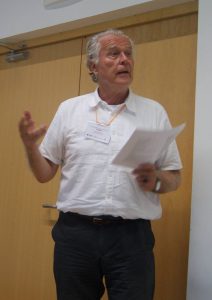I am happy to announce that my abstract ‘Don’t regret anymore! On the semantic change of the clause-embedding predicate żałować ‘regret’ in Polish’ has been accepted for an oral talk presentation at the conference Formal Approaches to Slavic Linguistics 24 (FASL 24) to be held at the New York University in May of 2015. Below you can find comments of three anonymous reviewers:
Reviewer 1: “Interesting paper and very well laid out. Definitely accept. And we can always do with more diachronic syntax at FASL!”
Reviewer 2: “An interesting paper with a diachronic component to it.”
Reviewer 3: “An interesting abstract – presenting a sound analysis in both synchronic and diachronic terms.”
